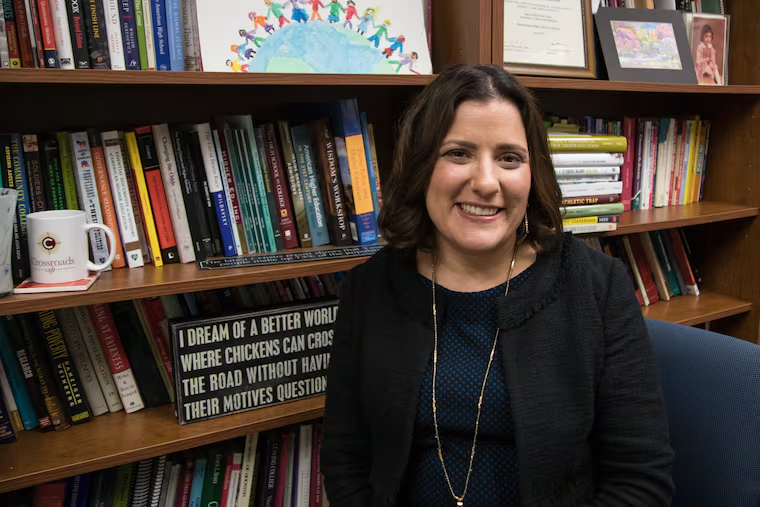Fighting student poverty requires help from an imperfect ally: The private sector | Opinion
We need to keep advocating for structural policy reforms to support students. We also need creative solutions, including from tech.

Last month, Dallas was hit by a major natural disaster, as 10 tornadoes unexpectedly descended upon the area. Assessments of the damage chart upwards of $2 billion, making it among the most expensive in Texas’ history.
When I learned of the tragedy, my thoughts went first to Dallas community college students. Since 2016 my research team has studied their efforts to obtain degrees, and learned that many are barely making ends meet. About half of those students experience food and/or housing insecurity. More than 1 in 10 endure homelessness. Even before the tornadoes, many were on the verge of dropping out. Students at the Community College of Philadelphia and community colleges across the country are in the same situation.
Students drop out of college every day over shortfalls as small as $200 because they couldn’t get effective emergency aid. This is a ridiculous problem. When I was in college and fell short of money, my grandfather stepped in to help. He was happy to accept my call and able to send a couple hundred bucks quickly. But most students don’t have that support. Instead, they turn to loans, and when that isn’t enough (and it often isn’t), they turn to their college.
At a place like the University of Pennsylvania with its large endowment, the odds of support are good — there are funds and staff aplenty to distribute them. But community colleges rarely have any extra money, and thanks to state disinvestment they are deeply under-staffed. In that setting, students are hard-pressed to even learn about available emergency grants, let alone receive them.
The situation is untenable. We need to restructure the system to prevent financial emergencies, and we also need nimble ways to help students in crisis. That’s why I founded Believe in Students, a nonprofit focused on supporting students’ living expenses. We avoid burdening college staff by giving money to faculty to distribute using the FAST Fund. But many faculty are also overwhelmed and short on money.
» READ MORE: Hunger Games series reaction: Readers are eager to help | Aaron Carter
If you’d asked me a couple of years ago, I would have said that students were out of luck until policy changes occur, and higher education is adequately funded. Like many academics, I didn’t think that business and technology had a role to play in addressing students’ poverty. That’s primarily because I’m focused on sustainable solutions and know that humans, and the caring that they provide, play an important role. I also know that, given its need to self-sustain, the private sector doesn’t have a strong track record of serving the most vulnerable among us without ultimately preying on them.
But the truth is, students can’t afford to wait for better government policies. Moreover, higher education and nonprofits are often painfully slow to innovate and develop. As for the humans?Although that element, particularly social work, is critical to student success, I realized that when it comes to deciding who gets emergency aid, humans aren’t always consistently helpful. Their decisions are plagued with implicit bias, and personal interactions force students to perform their poverty in order to obtain help. Plus humans in higher education officially work 8-10 hours per day, 5 days per week—while students have emergencies 24/7.
This is where technology can help: It can be programmed to be more consistent and free from outside influence. It can also bring practices to scale and be available 24/7 wherever data or WiFi are present. Given these realities, a technology solution should deliver emergency aid in new and innovative ways—to help students now, and demonstrate to government that it is possible.
So I joined Edquity, a Brooklyn-based tech company where I’m Chief Strategy Officer for Emergency Aid. Using my research, we built a tech-enabled emergency cash assistance platform for college students. Colleges win when we distribute the funds without requiring staff time and can stretch the dollars with strategic private sector partnerships, maximizing impact. Students win when they are heard and served quickly.
And students are never, ever charged.
» READ MORE: With news of Philly teacher getting sick from schools, Penn should step up | Opinion
Just three days after the tornadoes hit, Edquity began supporting Dallas students. In barely a week we processed over 250 applications—it took students less than 5 minutes to apply, under 24 hours to receive a decision, and they could get the funds transmitted to their bank account in no more than 48 hours. We distributed more $70,000 in assistance to students who need it most: 3 in 4 recipients are housing insecure, and almost 1 in 3 has a young child.
Critically, emergency grants are available to students 24/7 with Edquity, and Dallas colleges don’t have to further burden staff or faculty in order to help. These are tough times, and today’s students are warriors facing down the real price of college every day. We need to keep advocating for structural policy reforms that will prevent the unacceptable obstacles they face. In the meantime, we need to help them with as much creativity and resourcefulness as we can muster. From here on out, I plan to use every possible tool.
Sara Goldrick-Rab is a scholar-activist, founder, and social entrepreneur. saragoldrickrab.com @saragoldrickrab
The Inquirer is one of 21 news organizations producing “Broke in Philly,” a collaborative reporting project on solutions to poverty and the city’s push toward economic justice. See all of our reporting at brokeinphilly.org.